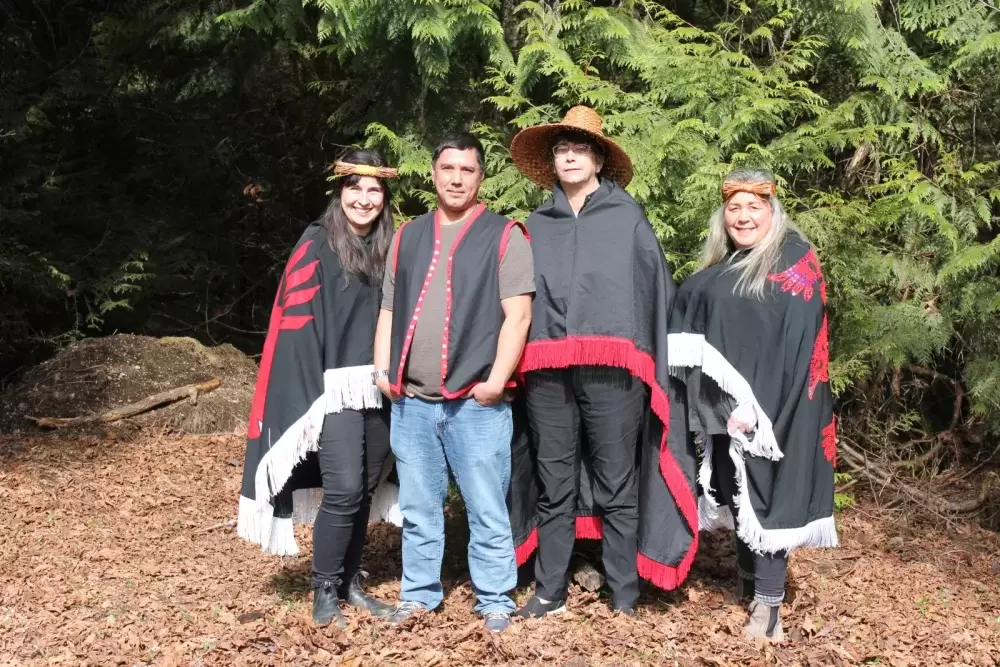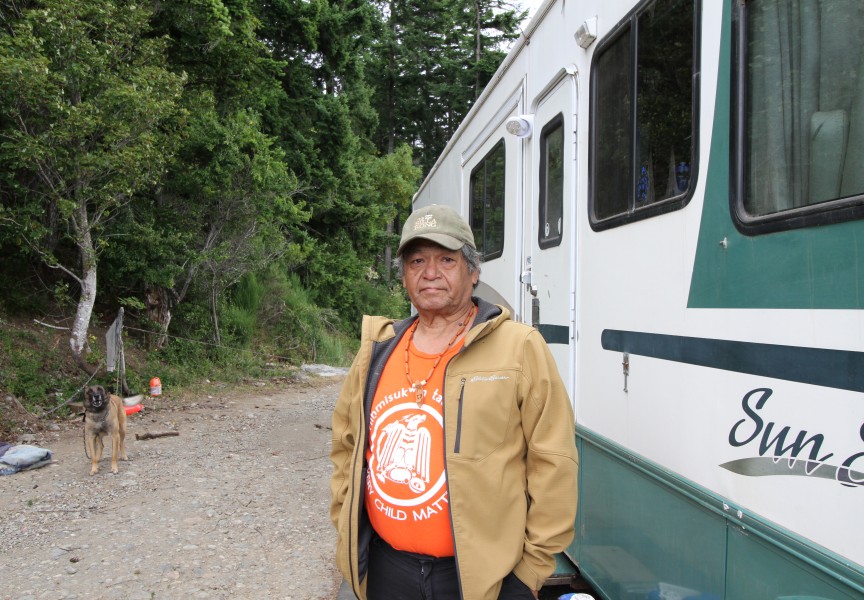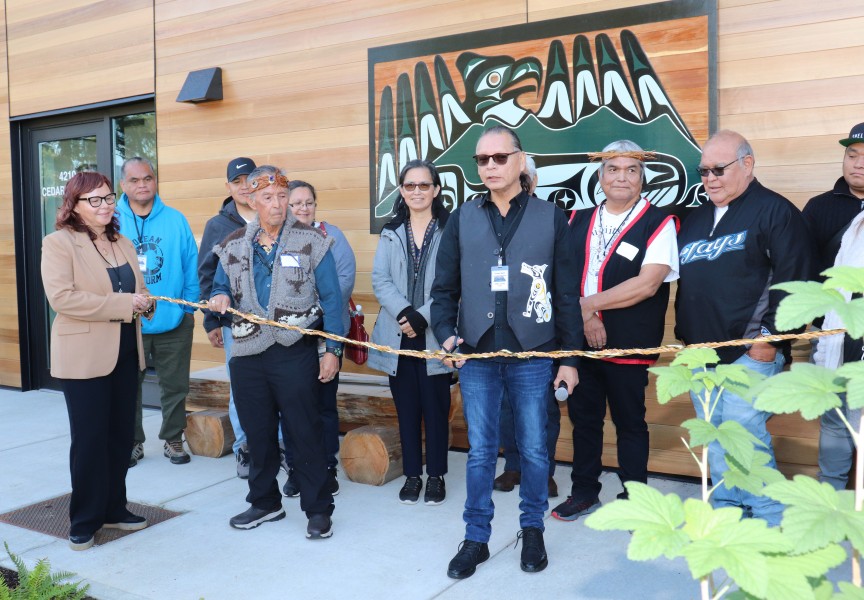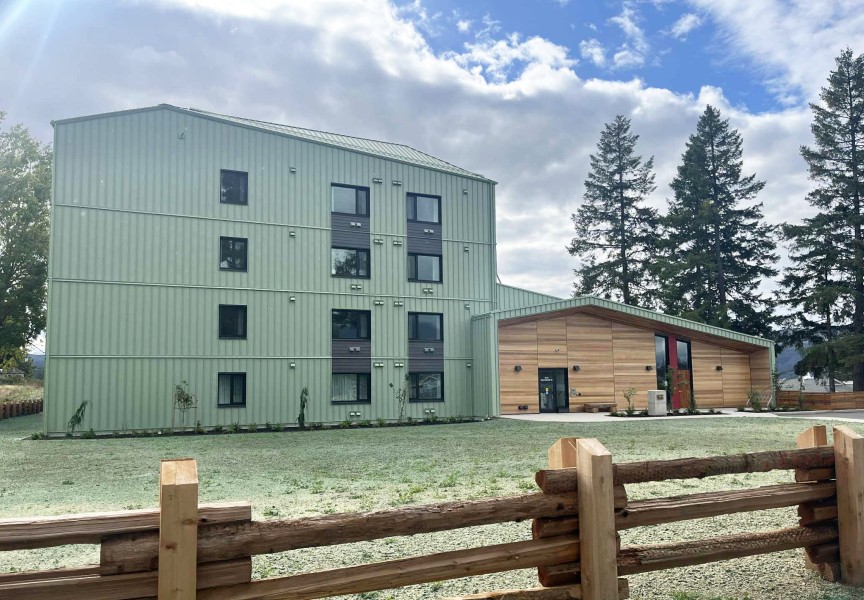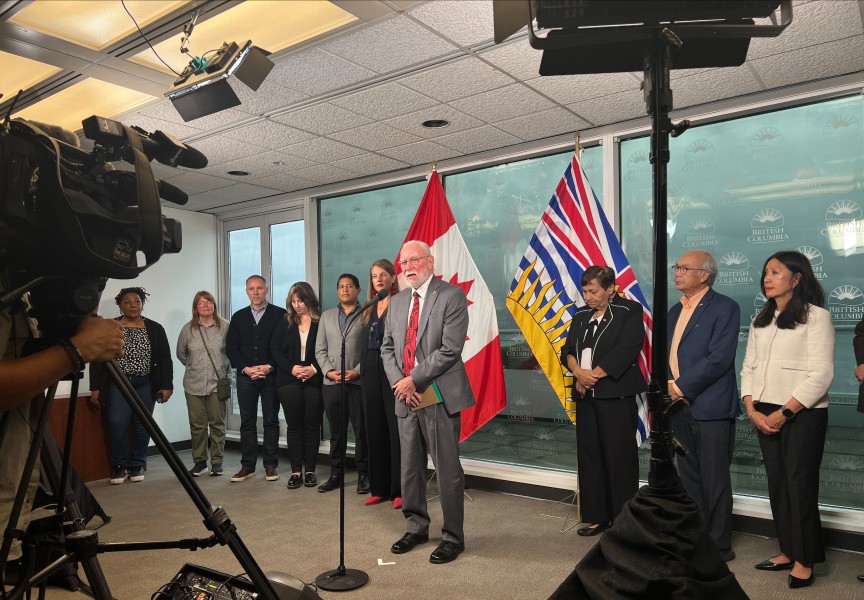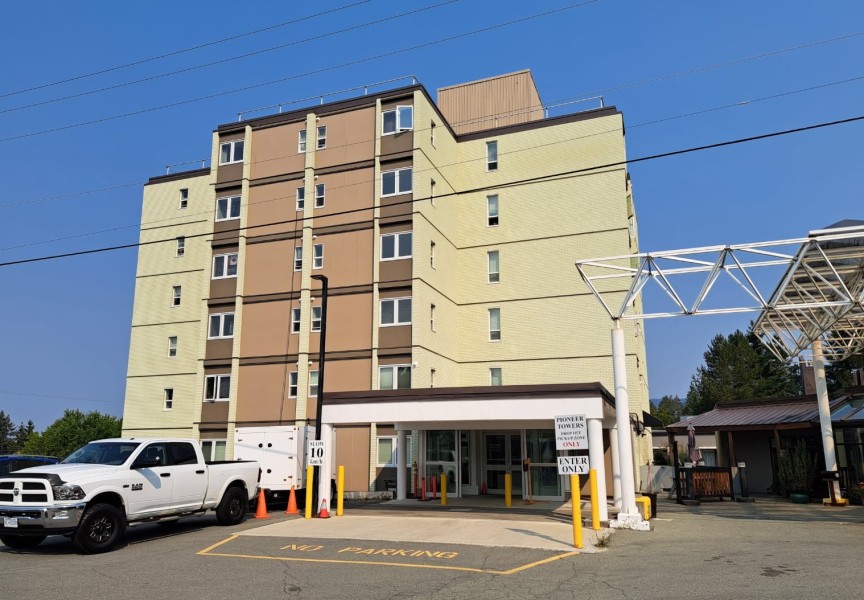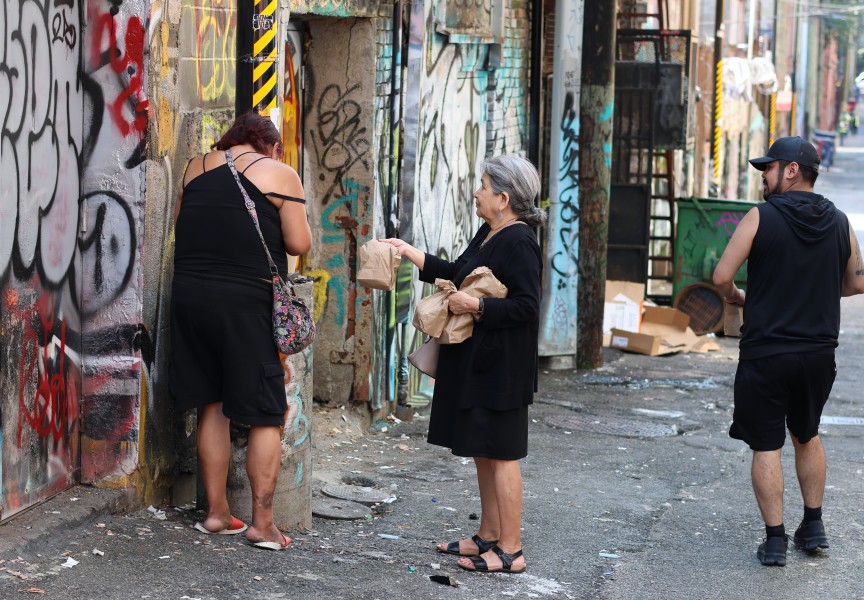Building more housing for Hupačasath members is a continued priority for the First Nation’s recently re-elected Chief Councillor Brandy Lauder.
Hupačasath First Nation held an election for chief and council in early April, resulting in three new councillors, only seeing Lauder re-elected to serve a second term as chief councillor.
Lauder, Serena Mayer, Cameron Tatoosh and Leah Wrigley will make up the First Nation’s chief and council for the next two years.
In a press release from the nation, Lauder said she’s excited to continue working on the projects she and the previous council had worked on over the last two years, with a focus on the Gill School purchase and building more housing for members.
“Currently we have many homes on reserve that are overcrowded as many of our young adults cannot find affordable housing/apartments in Port Alberni,” Lauder said. “Many of Hupačasath’s members have full-time jobs and still struggle with making all their bills, food and rent payments. They are unable to save up a down payment for a home of their own.”
Lauder said the nation’s list for members waiting for homes on reserve has averaged around 30-plus families every year. She added that single members are of a greater need and not as prioritized as single parents, families and elders.
“We are considering smaller more affordable homes (two bedrooms one bath), townhomes and apartments,” Lauder said. “However available building lots are in very short supply on our main reserve Ahahswinis, and sewer, water and transportation are a problem on our second reserve at Klehkoot.”
Lauder said the nation’s Comprehensive Community Plan (CCP) gave Hupačasath council direction to acquire more land from members and off reserve to build more homes.
“Our council has started to do this over the years and is the priority of our new council to start building when we can,” she added.
There are several affordable housing projects currently in various stages in the Alberni Valley and surrounding areas for Nuu-chah-nulth and others. The Walyaqil Tiny Shelter Village on lower Fourth Avenue will soon provide homes for 30 individuals, helping with the town’s homelessness population. The former Cedarwood Elementary School near the Fall Fair grounds will become an affordable housing complex for Ahousaht members living in Port Alberni. Also, 19 affordable housing units are being built within the Huu-ay-aht First Nations’ and Uchucklesaht Tribe’s communities.
In November 2022, the BC Indigenous Homelessness Strategy Steering Committee published the BC Indigenous Homelessness Strategy, which made 33 recommendations for addressing housing issues for the province’s Indigenous community.
The report states Indigenous community members continue to be widely over-represented across the homeless population in B.C. The 2018 Report on Homelessness Counts in BC found that 38 per cent of those reporting homelessness identified as Indigenous.
“High rates of Indigenous homelessness are attributed to the lack of affordable, safe, and accessible housing and intergenerational trauma resulting from colonization, cultural genocide and policies that actively sought to dismantle Indigenous culture, families and communities,” states the report.
During a thorough engagement process with more than 130 respondents from across B.C. who had experience with homelessness, the BC IHSSC heard several key themes.
Among those included that Indigenous peoples are negatively impacted by service systems that fail to care for and protect them physically, emotionally, mentally, spiritually, intersectionally and culturally. These service systems include shelters, child protection, health and social housing.
Respondents noted that Indigenous peoples have mixed feelings about their journey to acquire housing. Their negative experiences and feelings are impacting their health and ability to thrive. It was also heard that Indigenous people need more affordable homes and need to be included in decisions about what housing for them looks and feels like.
To address affordable housing shortages and homelessness amongst the province’s Indigenous population, the BC IHSSC recommends rent supplements for Indigenous peoples, promoting cultural safety in the housing sector, equitable funding for Indigenous-led complex care housing - designed and determined by Indigenous communities - and funding to help Indigenous tenants access legal clinics about rights and responsibilities.

